Thank you for joining us on Wednesday, September 21, 2022 from 12:00 pm – 3:30 pm (PST), for “We Are Children of Indian Residential School Survivors: Awakening Our Spirits, Our Purpose & Our Confidence”, the first session in this year’s Indigenous Speakers’ series. This event brought together a panel of Indigenous people who are children of Indian residential school survivors to acknowledge the importance of the National Day for Truth and Reconciliation, and to think about ways to heal, to figure it out, to come to terms with each other, and to give permission for the Indigenous people to also grow, learn and prosper.
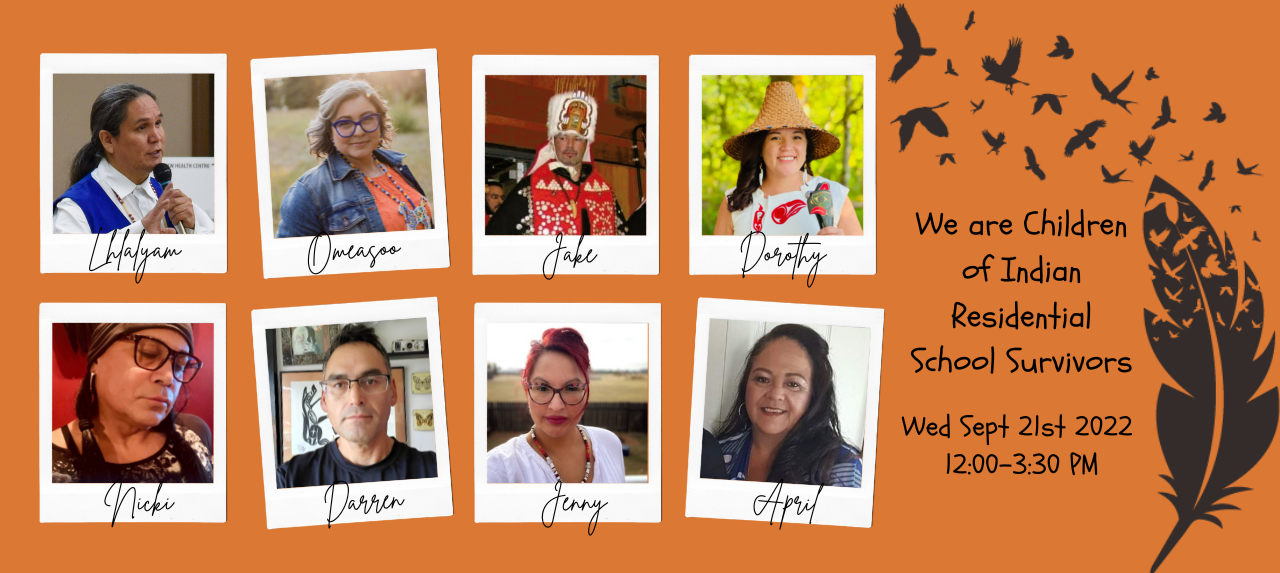
Thank you for joining us on Wednesday, September 21, 2022 from 12:00 pm – 3:30 pm (PST), for this important session “We Are Children of Indian Residential School Survivors: Awakening Our Spirits, Our Purpose & Our Confidence” This virtual event is presented by the Indigenous Speakers Series.
Speakers
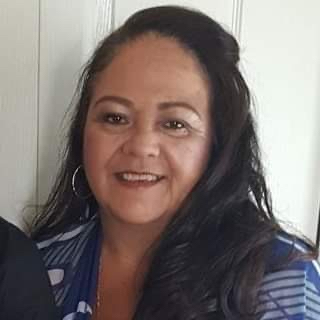
April White
April is from the Coast Salish community of the Snuneymuxw First Nation uniquely located centrally on Vancouver Island, and she has lineage amongst the Nuuchahnulth people on the west coast. She has worked with children and youth in the local school district in Nanaimo for approximately 15 years, and has dedicated her lifelong community service to the broader First Nations communities in the areas of sports and recreation all in an effort to strengthen culture, identity and belonging for young people. April has three daughters and is a proud grandmother to three granddaughters and two grandsons, and is a child and granddaughter of Indian residential school survivors.
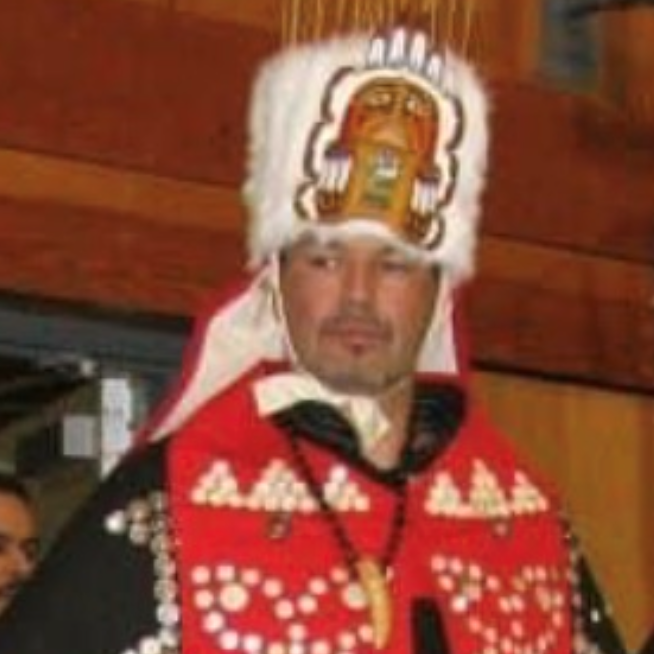
Jake Hamilton
My name is Jacob Hamilton – Kwiispiisiis and I was born in Victoria, BC, 1970, and my parents are Karen Johnson and Ron Hamilton – Haayuups. My ancestral name, Kwiispiisiis, means He goes back and forth between two villages giving feasts, and I have deep ancestral roots in the Nisga’a Village of New Aiyansh and the Hupacasath First Nation. My late mother was a survivor of the Edmonton Indian residential school between 1955 and 1963 when she was only six years old.
I am a proud father of two talented and beautiful sons, Johnson and Jayden Hamilton, and I strive to be the best Dad I can be.
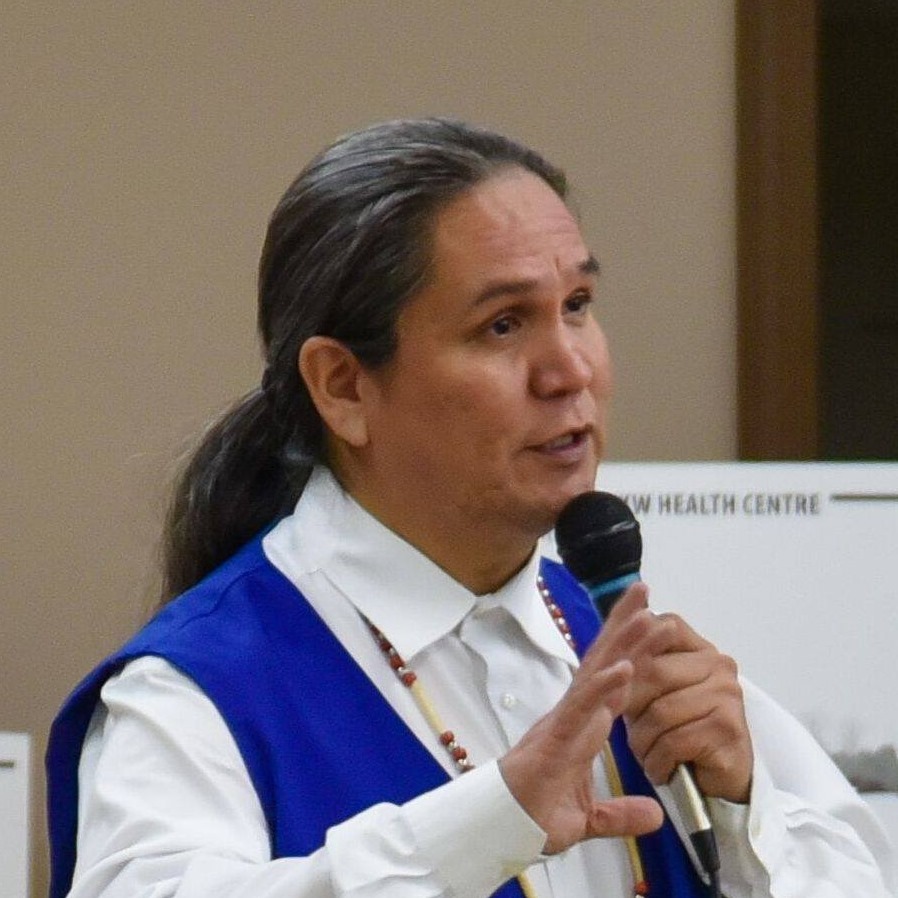
Charles Nelson
Lhlalyam, Hereditary Chief Charles Nelson, is from the Nuxalk people, who are located in the Bella Coola area of Central Coast of BC. The translation for his chief name is “Copper Constellation in the Sky.”
Lhlalyam – Charles Nelson who has been a father for 23 year years, descends from the late Jessie Nelson and the late Robert Moody. His mother was an Indian Residential School survivor and his father was an Indian Day School survivor. Jessie’s parent’s were the late Katie Nelson and the late Dan Nelson Sr. Lhlalyam – Charles Nelson’s grandparents on his father’s side were the late Charlie Moody, and the late Kitty Moody.
In his professional career, Lhlalyam – Charles Nelson worked a combined 12+ years in management and administration in the health, wellness, and social programming fields for indigenous communities and non-profit organizations. Currently, he is employed as a Health Director for Lytton Nation and as an Indigenous Project Coordinator for the Nanaimo Canadian Mental Health Association.
In closing, Lhlalyam – Charles Nelson has a passion in designing and creating systems plus building capacity. He continues to support his passion through opportunities with his career path and with his traditional family role.
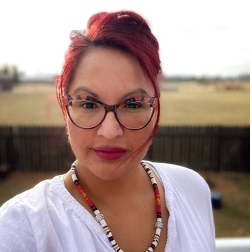
Jenny Gardipy
Jenny Gardipy is a mother of six and Kokom (grandmother in Cree) of four. She is from Beardy’s and Okemasis Cree Nation in Treaty 6 Territory. Jenny is currently a third-year PhD candidate in the Indigenous Studies Department at the University of Saskatchewan. Jenny graduated from the University of Saskatchewan in 2011 with a Master’s degree in Public Health. Jenny strongly believes that Indigenous peoples have the capacity and knowledge to make healthy changes in their communities. Jenny’s mother went blind when I was 13-years old and witnessed the lack of health services that many in the disabled community face. Jenny’s late father survived Indian Residential School and believes her late father’s humble and Nêhiyaw (Cree) ways of being continue to be her foundation. Jenny would like her research to contribute to positive health outcomes for Indigenous people.
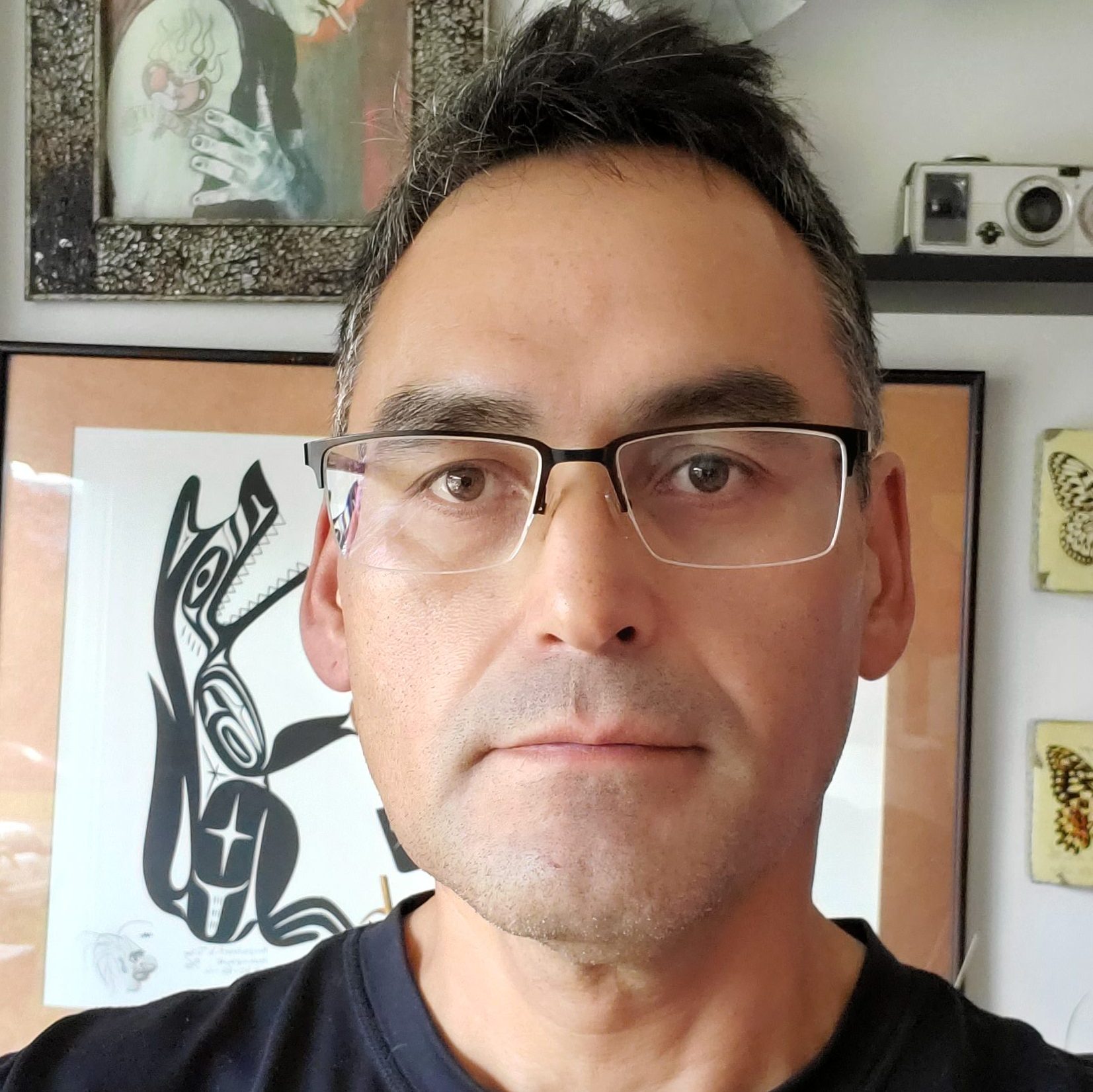
Darren Thompson
Chuuchuub – Darren Webster Thompson is from the Ditidaht First Nation located on the west coast of Vancouver Island. His parents are Maude (Shaw) and Charlie Thompson. His paternal grandparents were Ida (Modeste) and Webster Thompson and his maternal grandparents were Irene (Larsen) and Micha Shaw. His paternal great grandparents were Mary (Chester) and George Thompson from Ditidaht, and Mabel (Good) and Elwood Modeste from Cowichan Tribes. His maternal great grandfather was David Shaw from Kitimaat, and Walter Larsen from Bella Bella. Darren has lineage that extends into Nuuchahnulth, Coast Salish, Haisla, and Heiltsuk cultures.
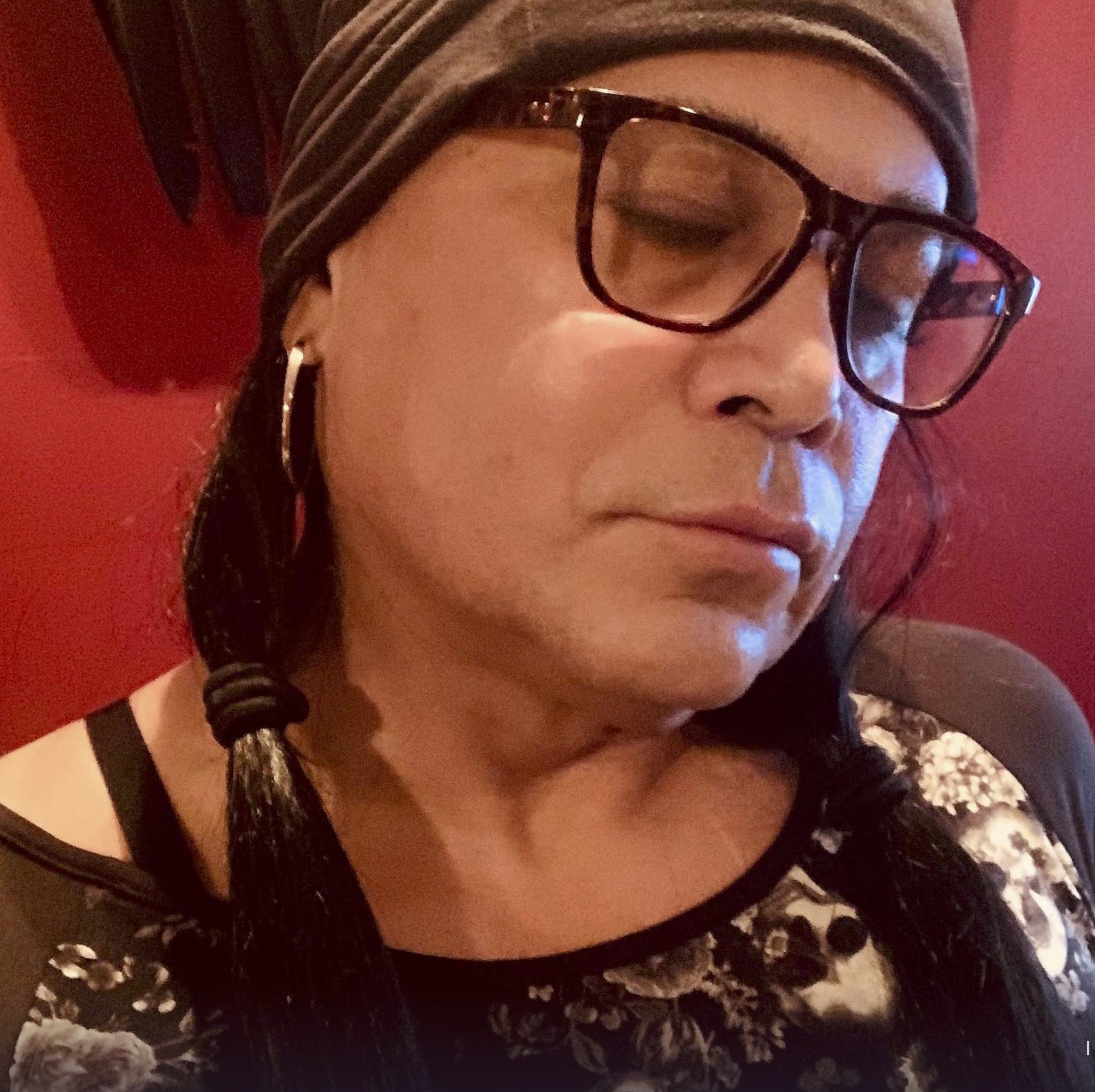
Nicki Love McCarthy
kʷissuuqƛ queer, non-hetero- normative, Transgender hereditary commoner. (They, them, she, her)
Current Regional Coordinator at Nuu-chahnulth Tribal Council. Nicki is from Hesquiaht and Yu?łu Pił?ath. For the past 30 years, they/she have led creatively with cultural best practices focusing on a new economy of the redistribution of knowledge, networks, and compassion.
Nicki has been the National Emcee, and educator for Truth and Reconciliation Canada. They/she has been at the forefront of Indigenous mental health leadership throughout Canada and is a published researcher who has lectured at universities throughout North America. Nicki is a storyteller who brings traditions into the modern world and is a master carver of precontact tools.
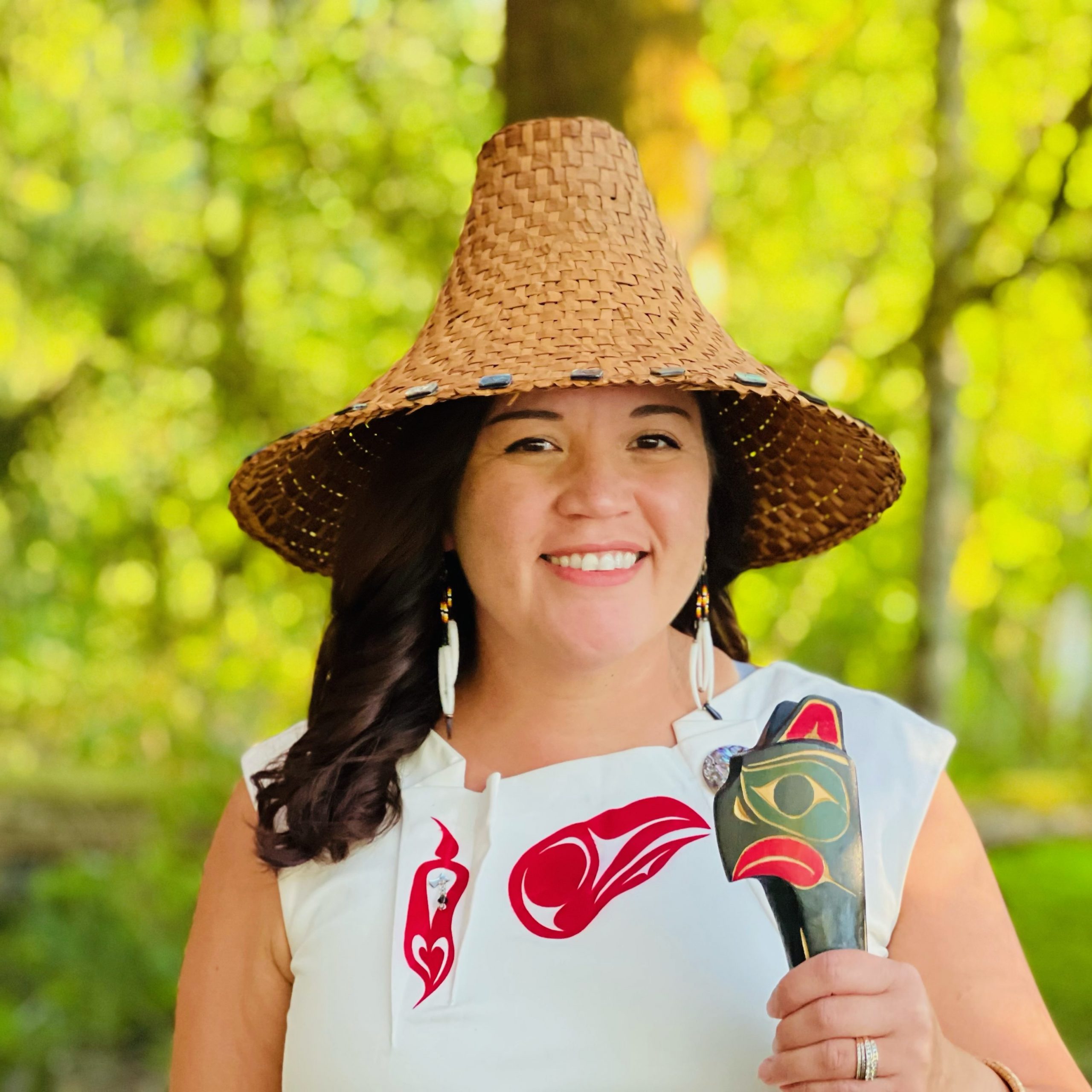
Dorothy Burn
ʔukʷaqiłs yac̓asʔutł. (My name is Step Up) My English name is Dorothy Burn.
I am Ditidaht with strong roots in Tla-o-qui-aht, both are nations on the west coast of Vancouver Island.
My biological parents attended the Alberni Indian Residential School (AIRS), as did each of my maternal and paternal grandparents. I am a child of residential school Survivors. “I” am a survivor.
Having been raised by my maternal grandparents in a small, semi-remote village located at Nitinaht Lake on the west coast of Vancouver Island, I was blessed with a strong upbringing in our culture, language, and traditions which are very important to me, and of which I continue to be involved in and strive to be an example of for our future generations.
After graduating high school in 1997 , I went on to attend Nicola Valley Institute of Technology to study and obtain Diplomas in Natural Resources. However, I went on to a career in the service industry, first in hospitality then as a Health Care Assistant, which is my current profession.
My hobbies include making regalia, general crafts, cooking (which I love to do), reading, and making specialty cakes.
I am very happily married and have a very quirky dog named Sarge. I endeavour to work hard and live healthily – mentally, physically, and spiritually, as well as to live life to the fullest while caring for those that I love.
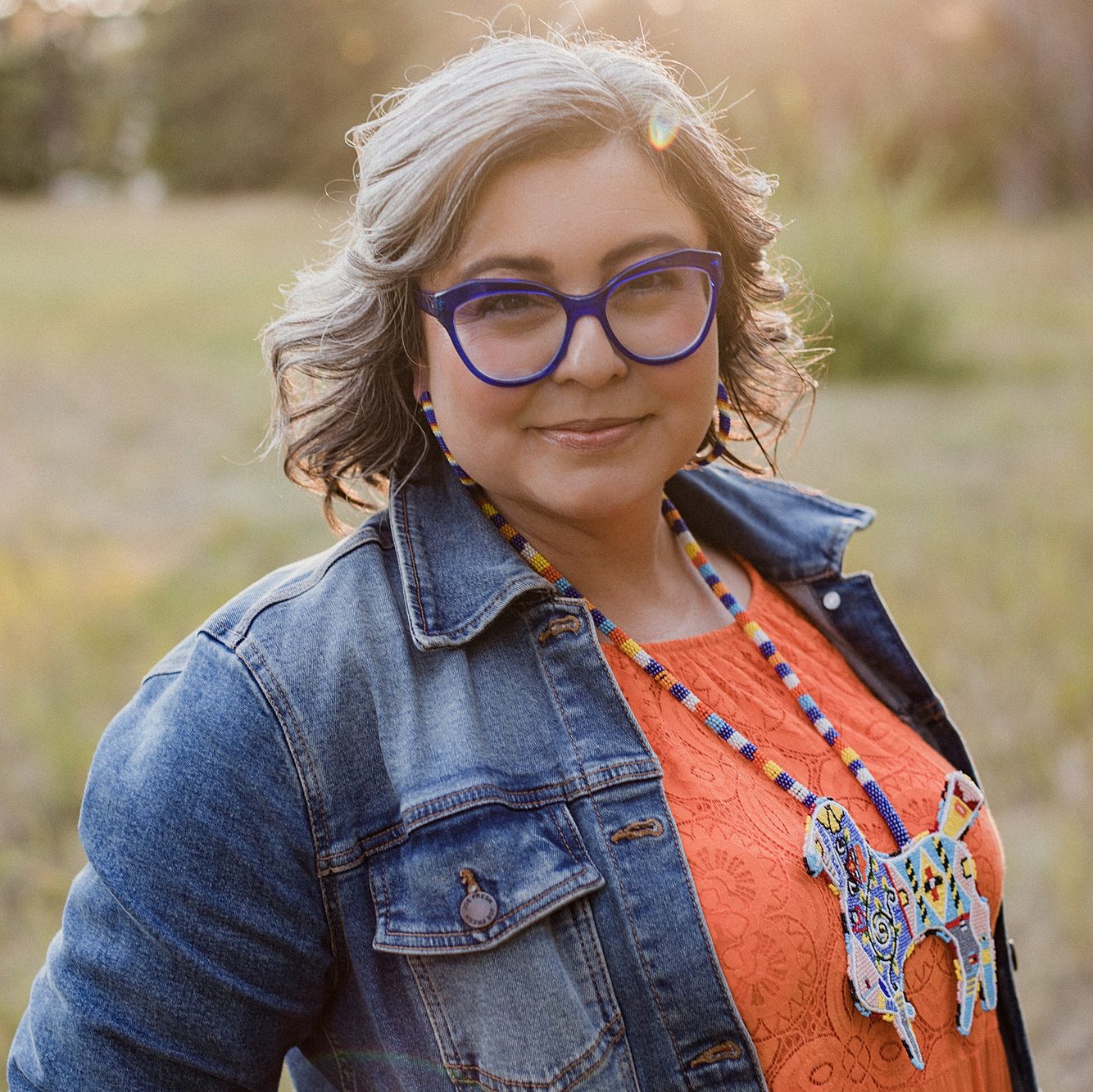
Omeasoo Wāhpāsiw
Omeasoo Wahpasiw is a nehiyaw iskwew from Treaty 6 territory living on Algonquin Anishinaabe territory currently known as Ottawa, Ontario. Omeasoo teaches in the School of Indigenous and Canadian Studies and the Azrieli School of Architecture and Urbanism, at Carleton University. Her research touches on the pedagogy of the built and natural environments of Indigenous peoples on Turtle Island. Omeasoo received her PhD in 2016 from the University of Saskatchewan, birthed Miyo Kesikaw that same week, and began her academic career at the University of Prince Edward Island and Mi’kma’ki in 2018.
Moderators
- Derek K Thompson – Thlaapkiituup, Indigenous Advisor
- Namaste Marsden – Masemtxoxw, Director, Indigenous Engagement
Description
From one generation to the next we inexplicably inherit all that is both good and bad from those that came before us. Many survivors of the Indian residential school experience in Canada passed on the torch of hope and determination but they also passed on an inferno of unresolved trauma and grief. Many survivors were robbed of their formative childhood and consequently of the necessary skill sets to raise children. The children and grandchildren of survivors were robbed of all of the dignity and grace of our Ancestors, and all that they bring into the world that make us unique, bright and confident. As one generation comes to terms with the past, how then do current descendants come to terms with the present? And how do our families and communities come together to create a future built on truth, forgiveness and acceptance?
This timely and relevant session will consider these and other important questions within the context of telling the truth and reconciling for the future. We are bringing together a panel of Indigenous people who are children of Indian residential school survivors to acknowledge the importance of the National Day for Truth and Reconciliation, and to think about ways to heal, to figure it out, to come to terms with each other, and to give permission to our children and grandchildren to also grow, learn and prosper.
2022 will mark the 2nd annual National Day for Truth and Reconciliation. This important day is an opportunity for all Canadians and British Columbians to think about the continuing legacy of the Indian residential school experience in Canada as well as the broader impact of colonialism, oppression, assimilation, and racism against Indigenous – First Nations, Inuit and Métis – peoples. It’s a chance to enrich our individual and collective understanding of the past and to create a new chapter in our shared history that is founded on the principles of respect, truth, reconciliation, and redress.
Topic: We Are Children of Indian Residential School Survivors: Awakening Our Spirits, Our Purpose & Our Confidence
Date: Wednesday, September 21, 2022
Time: 12:00 – 3:30 pm PDT
What Will I Learn?
You will learn about the context of truth, reconciliation and redress between generations of people affected by the Indian residential school experience in Canada.
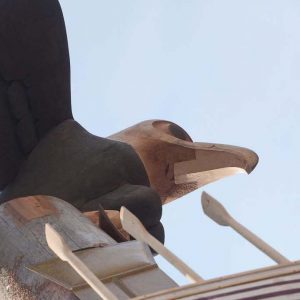
Continue Learning
“The time to make things happen is now. The time to seek out our individual and shared power is now.”
Learn more about REDI’s Indigenous Initiatives here
Discover more about REDI’s Indigenous Initiatives Speakers Series here
Find REDI’s Indigenous-Specific Resources here